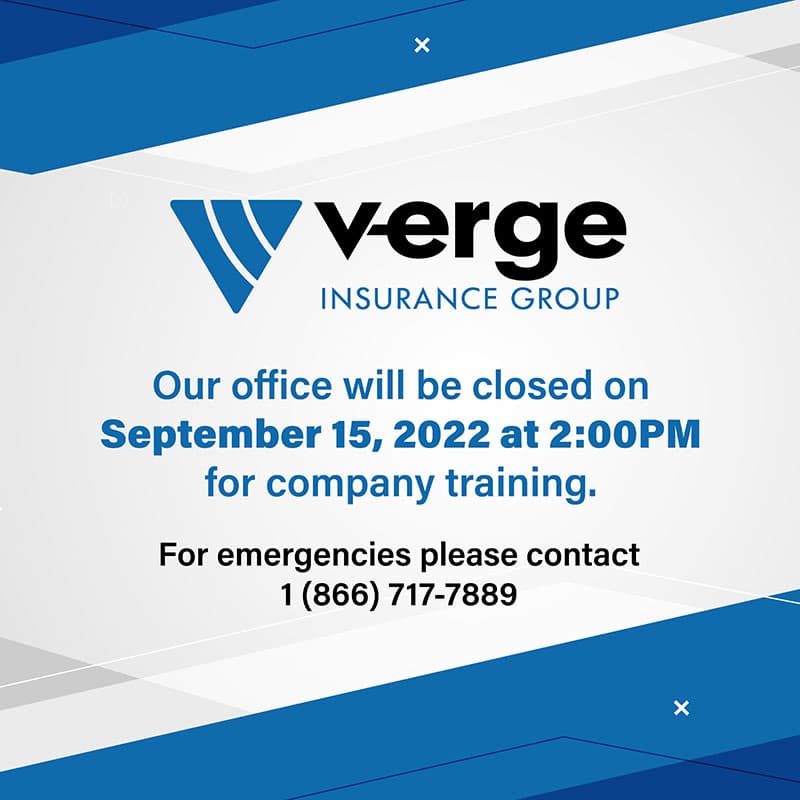
Do You Know These Auto Insurance Essentials?
March 10, 2023
Whether you’re buying auto insurance for the first time or updating your existing coverage, it’s important to understand the essentials that make up your auto policy. Insurance doesn’t prevent accidents, but it can help protect you from the financial consequences of one. The choices you make when buying your policy can have a big impact on any future claims you may have.
Let’s look at the seven essentials of auto insurance that you should consider when buying your next policy:
1. Third-party liability
Car accidents can result in serious injuries and even death. Third-party liability coverage can help cover the costs of claims resulting from injuries or property damage if you are at fault. If your vehicle damages municipal structures or buildings, costs can quickly add up.
Liability coverage is mandatory in all provinces, but the amount of required coverage will vary depending on the province you live in. To know how much liability coverage you might need, consult your insurance broker.
2. Medical payments
Medical payments coverage, also called personal injury protection, is mandatory in most provinces and pays for medical and attendant care for you and your injured passengers up to the limit of coverage. Find out from your insurance broker what the minimum amount of coverage required in your province and what he recommends.
3. Disability income benefits
Disability benefits are mandatory in most provinces and provide wage loss compensation for permanent and temporary benefits to varying degrees based on where you reside. The benefits are usually paid as a percentage of your normal wage for a set number of weeks if you have a job, or as a set amount for non-earners.
4. Collision
Collision is bumper-to-bumper coverage for your car. It pays for repairs to your vehicle after a collision with an object or other vehicle, saving you the cost of paying thousands of dollars in repairs. Many lenders and leasing companies require collision coverage if your car is financed or leased.
If your car is older or your financing has been paid in full, you may no longer need collision insurance. Talk with your insurance broker to see if this makes sense for your situation.
5. Comprehensive
Comprehensive is optional coverage for your car that pays for the cost of replacing a stolen vehicle or damages to the vehicle such as those caused by vandalism, objects falling on the car, fire and windstorms.
Comprehensive is not essential, but it does provide additional protection at little cost. As with collision coverage, if you own a car of little value, you should ask your insurance broker whether or not to add this coverage.
6. GAP
Depreciation is the estimated loss in value of your vehicle. According to CARFAX, a car loses up to 20% of its value after twelve months of ownership. Insurers use this during a claim to establish the amount that will be paid if you don’t have GAP insurance to make up for depreciation.
GAP insurance will cover the difference between what the value of your loan or lease is and what the insurance company is willing to pay when factoring in depreciation. Is GAP essential? Lenders may require GAP insurance for leased vehicles or car loans; talk to your insurance broker beforehand to get all the details.
7. Premiums
Great coverage doesn’t have to be expensive. Here are several ways to manage your costs: Bundle your auto and home/renter’s insurance – there is savings in having all of your insurance in one place.
- Maintain a good driving record – Follow speed limits, practice defensive driving, maintain a safe distance between cars when driving, exercise caution during adverse weather conditions and limit distractions. These will keep you safe and your claims low.
- Increase your deductible – To lower the cost of collision coverage, you can always raise your deductible from $500 to $1,000.
- Talk to your broker about any discounts that might be available for safe driving and car safety features such as airbags, anti-lock brakes and security systems.
These seven essentials only begin to explain what auto insurance is all about. To get a full assessment of your insurance needs and for guidance on the best auto insurance coverage for your situation, contact your insurance broker.
Recommended

